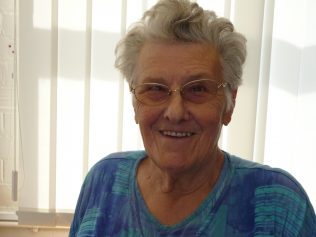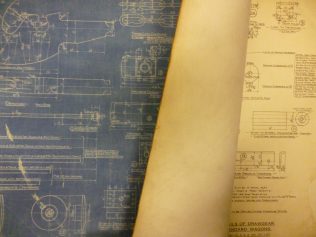Jenny Bomberg







Jenny Bomberg (nee Mountney) recalls her life in Tredworth in the early 1940s.
In the early clips, she remembers attending Carlton Road school during the war and her own small contributions to recycling for the war effort.
She goes on to remember her father’s close friendship with Frank Barber in the Drawing Office of The Gloucester Wagon Works. In these very detailed memories, she touches on the sports clubs of the Wagon Works and how her father and Frank Barber tested the tanks built there during the war.
In clip 5, Jenny reveals how her father’s work for the company kept them in blouses during the war. An example of the kind of linen-backed technical drawings from the Wagon Works that she remembers her father bringing home and from which they used to make clothing can be seen pictured above the clip.
In the final clips, she recalls what daily life was like during the war: the swill bins, milk rounds, and rainwater used for washing.
The photograph above clip 5 is taken from the collections of Gloucestershire Archives (Document Ref. No. D4791). Gloucestershire Archives holds thousands of documents concerning the history of people and places in Gloucestershire and can be used for free by members of the public. Click here to find out more about Gloucestershire Archives’ resources.




No Comments
Add a comment about this page